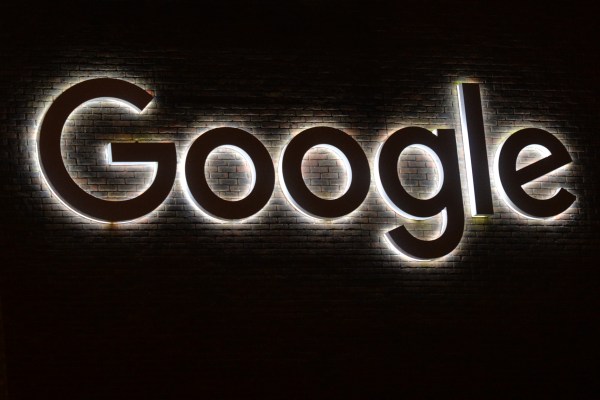The European Commission has signalled it could be preparing to break up Google’s adtech business.
Speaking during a press conference this afternoon, EU EVP Margrethe Vestager, the bloc’s competition chief and head of digital strategy, announced it has sent a formal statement of objections to Google for suspected anti-competitive conduct in its adtech business.
If the Commission confirms its suspicions she said it is looking at breaking up Google’s adtech as the only viable solution to resolve what she described as an “inherent” conflict of interest — the result of Google’s dominance of both the buy and sell sides of the adtech market, combined with its ownership of an ad exchange (AdX).
The EU opened its investigation into various aspects of Google adtech business two years ago, including probing obligations the company imposed to use certain of its ad services when purchasing display ads on YouTube, and the potential favoring of Google’s ad exchange by other Google ad services and vice versa. It also said it would look at restrictions Google applied on the ability of customers to use third parties to access data about user identity or behaviour — apparently in favor of requiring they use Google’s own advertising intermediation services, including the Doubleclick ID.
That 2021 investigation has now sharpened into a hard suspicion that Google has abused dominant positions in the adtech stack by unfairly favoring its own ad tools over rivals.
The Commission will continue investigating to reach a final verdict on the case. So there is no antitrust breach finding as yet.
Vestager said the investigation so far found Google appears to have abused its dominant positions in both the buy and sell sides of the adtech market by applying “many different forms” of often “subtle” self-preferencing conduct which resulted in its intermediating ad tools favoring its own ads in matching auctions and enabling Google to squeeze competitors and maintain a “high” fee on its own ad exchange, per the Commission’s findings.
She gave two examples of the suspected anti-competitive behavior — saying it had found Google’s sell side tools for publishers had been giving it “a substantial edge” in ad auctions over its rivals since at least 2014.
“In certain instances [Google] ads had the right to bid after all other bidders had placed their bids,” she explained, adding that in other instances the investigation had found Google’s adtech being informed in advance what the best bid was — saying the situation amounted to Google organizing a sealed bid auction yet Google’s own participant was allowed to open the envelope to read rivals’ bids before placing its own.
On the buy side, the Commission found that Google’s ads placement tool did not place bids on many ad exchanges, which Vestager said “one would expect” (i.e. in order to maximize the possibility of ads being widely displayed) — rather the investigation showed Google placed Google bids almost exclusively on Google’s own ad exchange. Hence it suspects Google of distorting competition among ad exchanges.
“The helping hand of the powerful Google ecosystem gave Google’s own exchange a unique head start over all rival ad exchanges,” she adding, noting that the behaviors identified meant Google could afford to keep its commission high without losing advertisers.
In a break from the bloc’s typical modus operandi on competition, which favors behavioral rather than structural remedies to fix issues, Vestager said the Commission has assessed that the conflict of interest is so great vis-a-vis Google’s position in the adtech market it has concluded there would be no other way to resolve the suspected anti-competitive conduct than divestiture.
She suggested this could mean Google having to sell its sell-side adtech tools (DV360 and GoogleAds). Although she also stressed the Commission first needs to confirm its suspicions through further investigation. (But if it does, the remedy it will order has been clearly scoped as a break-up of Google’s adtech empire.)
“In this value chain [the thing is] that Google is everywhere,” she added. “It is very technical so it’s also difficult to see how a monitoring trustee should be able to detect what we have seen in the investigation — these very subtle modifications of behavior that have enabled Google to commit what we see as an abuse of a dominant position.”
Responding to the Commission’s charges in a statement, Dan Taylor, VP of global ads for Google, said:
Our advertising technology tools help websites and apps fund their content, and enable businesses of all sizes to effectively reach new customers. Google remains committed to creating value for our publisher and advertiser partners in this highly competitive sector. The Commission’s investigation focuses on a narrow aspect of our advertising business and is not new. We disagree with the EC’s view and we will respond accordingly.
Back in January, US authorities sued Google over similar antitrust allegations — accusing the tech giant of achieving monopoly control of the digital ad market through “anticompetitive, exclusionary, and unlawful means”.
Competition authorities in the UK also began looking into the positions Google holds in the adtech tech stack in May last year. The probe remains ongoing.
Google’s plan to deprecate support for third party tracking cookies in its Chrome browser, and migrate to an alternative form of ad targeting (aka its’ Privacy Sandbox proposal), was also announced as part of the Commission adtech probe back in June 2021. But today’s statement of objections has focused on Google’s current-gen adtech.
